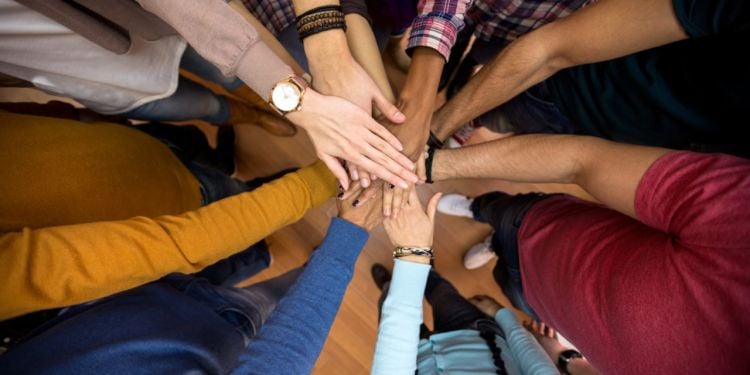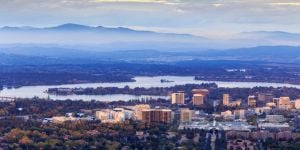
With its rich history of migration, Australia is one of the most multicultural places in the world. As an expat moving to Australia's big cities, you'll notice an array of immigrant communities. Melbourne and Sydney are rated as some of the best student cities globally, with Melbourne at number one for the diversity and inclusiveness of its student population. But while diversity and inclusion are reflected in Australia's laws and policies, and are promoted in the workplace and broader culture, they are complex subjects in Australia, with discrimination and racism based on religion or ethnic origin an ongoing issue.
Australia's past
Australia is a country with a complex identity formed from its early history as a penal colony. Many of the early European settlers were convicts or their descendants. Immigration is a fundamental part of the country's identity and history, with waves of migration following World War II. In addition to the British, the first wave consisted of hundreds of thousands of people from Eastern Europe who were displaced during the war, followed by new Australians from Greece, Italy, Malta, Turkey, and Croatia during the 1950s and 1960s. Since the 1970s, Australia has welcomed new arrivals from across the globe, including Vietnam, East Timor, New Zealand, Lebanon, South Africa, China, India and the Horn of Africa.
Indigenous Australians
The arrival of British colonizers in 1788 marked the beginning of a long period of dispossession, violence, and cultural suppression that devastated Indigenous communities. During the early years of British settlement, many Indigenous Australians were killed by colonizers, either through direct violence or through the spread of diseases to which they had no immunity. Indigenous Australians were also forced off their land and into missions and reserves, where their cultural practices and traditions were often suppressed or erased. Children were forcibly removed from their families and placed in government-run institutions as part of the policy known as the Stolen Generations, causing intergenerational trauma that still affects communities today. Indigenous Australians experience higher rates of poverty, unemployment, and incarceration than non-Indigenous Australians and have worse health outcomes and lower life expectancy.
In recent years, there has been a growing recognition of the ongoing impact of this history on Indigenous Australians, along with a movement towards reconciliation and healing. In Australia, there is currently a political and social reckoning with the country's colonial history. Australia Day, which is observed annually on 26 January, marks the 1788 landing of the British in Australia. Australia Day has been a time to celebrate the nation and its people, and it is also a popular date for Australian citizenship ceremonies for immigrants taking the step to become Australian citizens. However, it has also become a day of protest for many, who now call it 'invasion day' and rally in support of Indigenous rights.
Cultural diversity in Australia
Australia is a culturally diverse country, with a population comprising individuals from diverse cultural and ethnic backgrounds. The country has a long history of immigration, and this has led to a multicultural society that, especially in metropolitan areas, largely celebrates and embraces diversity. This diversity is reflected in many aspects of Australian culture, including food, dress, music, and religion. In big cities like Sydney and Melbourne, it's common to hear multiple languages spoken on the streets, and there are vibrant cultural festivals and events that celebrate the community's diversity.
Gender equality in Australia
The Workplace Gender Equality Act (WGEA) is a piece of legislation that aims to promote and improve gender equality in the Australian workplace. It was first introduced in 2012 and was amended in 2025, with the government introducing a world-first gender equality targets scheme. This means organizations with more than 500 staff members must set and meet three gender equality targets. Under the Act, employers in Australia are required to report on a range of gender equality indicators, including the gender composition of their workforce, pay equity, flexible working arrangements supporting employees with family or caring responsibilities, and the representation of women in leadership roles.
The Act provides a framework for employers to develop and implement strategies to improve gender equality in their workplaces. This can include initiatives such as flexible work arrangements, parental leave policies, and unconscious bias training. The WGEA is important because it helps to address the gender pay gap and other forms of gender inequality in the workplace. Despite significant progress in recent years, women in Australia continue to face barriers to achieving equal pay, representation in leadership roles, and other forms of workplace equality. The WGEA provides a tool for employers to measure and improve their gender equality performance, ensuring that gender equality remains a priority in the Australian workforce.
Disability in Australia
There are 4.3 million Australians with a disability, and there are several laws in place to protect the rights of disabled people. The Disability Discrimination Act (DDA) protects against discrimination based on disability and makes it unlawful for people with a disability to be denied access to public areas and facilities. This means that pathways, toilets, and lifts must be accessible, allowing individuals in wheelchairs to enter the premises unobstructed. Additionally, the National Disability Insurance Scheme (NDIS) was introduced in 2013 and fully implemented nationwide by 2020. The NDIS provides funding to approved individuals, enabling them to access disability services, and now supports more than half a million Australians. If you have a permanent residency visa, you are eligible to apply to the NDIS. New Zealand citizens on Protected Special Category Visa are also eligible. However, if you do not qualify for the NDIS due to your residency status, there are other disability services for expats in Australia to access.
LGBTQ+ rights in Australia
Australia has made significant progress in recent years in terms of LGBTQ rights. In 2017, same-sex marriage was legalized in Australia following a national referendum in which 61.6% of voters supported marriage equality. This was a landmark moment for the rainbow community in Australia and brought the country in line with many other progressive nations around the world.
However, while same-sex marriage is now legal in Australia, there are still issues facing the queer community in the country. Discrimination and harassment can be found in the workplace, in schools, and in health care settings. To address these issues, Australia has introduced a range of anti-discrimination laws. There are also numerous advocacy groups and support organizations that work to promote the rights and well-being of LGBTQ people in Australia.
We do our best to provide accurate and up to date information. However, if you have noticed any inaccuracies in this article, please let us know in the comments section below.








